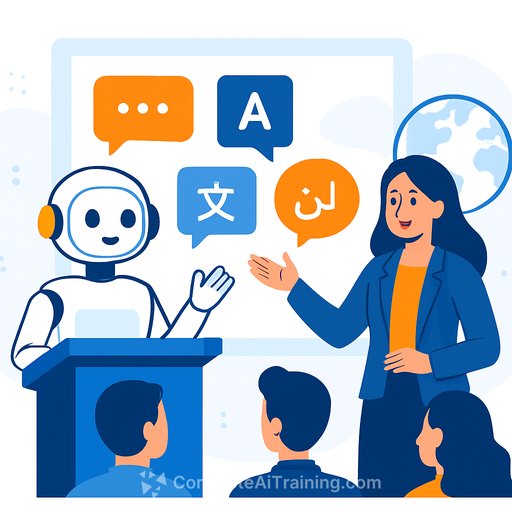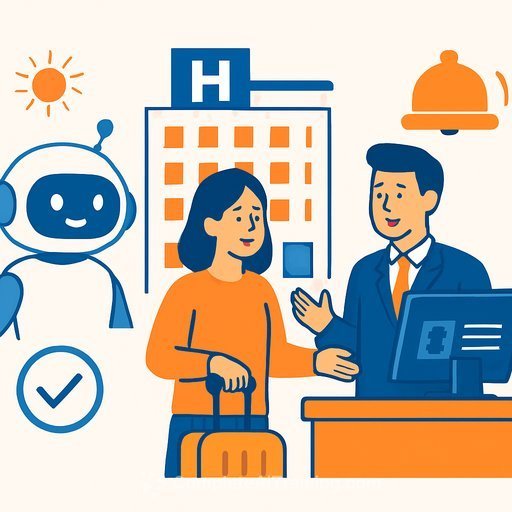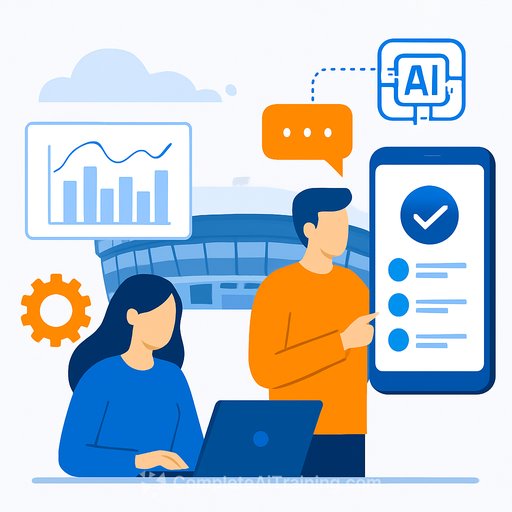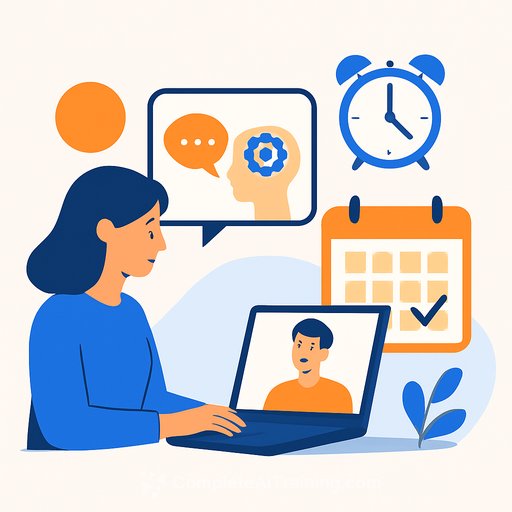Aristara AI launches multilingual digital assistant at Future Hospitality Summit World
Aristara AI introduced a multilingual digital assistant at Future Hospitality Summit World - a practical move for hotels, resorts, venues, and organizers who live and breathe guest messaging, last-minute requests, and group logistics.
The promise is simple: answer more questions faster, in more languages, across more channels, with less strain on your team. If guest service and event ops are your daily grind, this is worth a look.
Why this matters for hospitality and events
Guests and delegates message in different languages, at all hours, on every platform. Your team can't be everywhere at once.
A multilingual assistant can handle routine questions, push timely updates, and hand off the tricky stuff to staff. That frees your people for high-value interactions and on-site problem solving.
What the assistant can actually do
- Answer FAQs: check-in/out, amenities, Wi-Fi, parking, meeting room specs, AV, seating layouts, dress codes.
- Handle requests: late checkout, extra towels, room moves, dietary notes, special access, badge reprints.
- Support sales: room block links, RFP intake, site visit scheduling, function space availability, add-on upsells.
- Event comms: agenda updates, wayfinding, shuttle times, speaker changes, push alerts for last-minute shifts.
- Work across channels: website chat, WhatsApp, SMS, QR code kiosks, in-app messaging, email.
- Escalate to humans with full context when confidence is low or the guest asks for a person.
Where it fits in your stack
Expect integrations with your PMS, CRS/booking engine, CRM, POS, ticketing, and event apps. That's how it pulls live data, logs interactions, and keeps records clean.
No connection? It should still reply from curated content (knowledge base, menus, floor plans, event guides), but the best wins come from system-level hooks.
Results you can target
- Fewer front desk and call center repeats for the same questions.
- Faster RFP responses and cleaner lead capture for groups and events.
- More pre-arrival and mid-stay add-ons without staff chasing every request.
- Clearer guest communications during peak hours and program changes.
Quick rollout plan (sample)
- Week 1: Define the 50 most common questions and actions. Gather menus, maps, room specs, venue policies, and event FAQs.
- Week 2: Connect to core systems. Set up languages and channels. Build handoff rules and escalation paths.
- Week 3: Soft launch on web and QR codes. Shadow the assistant, tune replies, and fill content gaps.
- Week 4: Add WhatsApp/SMS, enable upsells, and turn on dashboards. Train front office, concierge, sales, and event ops on handoffs.
Questions to ask the vendor
- Which languages are covered natively, and how is accuracy monitored?
- What channels are included (web, WhatsApp, SMS, in-app, email)? Any extra fees?
- How do integrations work with PMS/CRM/booking engine/POS? Is there rate limiting?
- What's the process for human handoff, transcripts, and notes back to the system of record?
- How are analytics reported (deflection, response time, CSAT, upsell revenue, RFP speed)?
- Data handling: storage location, retention, deletion, and compliance details.
- Content control: who approves responses, and how are updates published?
- Pricing model: per property, per channel, per conversation, or per user?
Risks and guardrails
- Set clear boundaries: no quotes or confirmations that rely on stale data.
- Label automations and keep an easy "talk to a person" option visible.
- Audit multilingual replies weekly at launch; tighten phrasing and banned topics.
- Keep a fallback script for outages or system changes.
Event organizer playbook
- Pre-event: registration help, venue details, travel info, sponsor highlights, accessibility notes.
- Onsite: real-time agenda changes, room switches, line management, lost and found, speaker updates.
- Post-event: surveys, session recordings, lead routing, certificate delivery.
Metrics that actually help
- First response time and time to resolution.
- Deflection rate (what never hits your team).
- Conversion on upgrades, add-ons, and late checkouts.
- RFP cycle time and qualified lead volume.
- CSAT/NPS by language and channel.
If you're planning next steps
Pilot it on one channel with one team. Prove it on FAQs and late-night coverage first, then expand to upsells and group workflows.
Train staff on handoffs and tone. Automation is useful, but your people close the loop.
Learn more
For event context and trends, see the official page for Future Hospitality Summit World here.
If you're building team skills around AI for guest service and event ops, explore practical course paths at Complete AI Training.
Your membership also unlocks:






